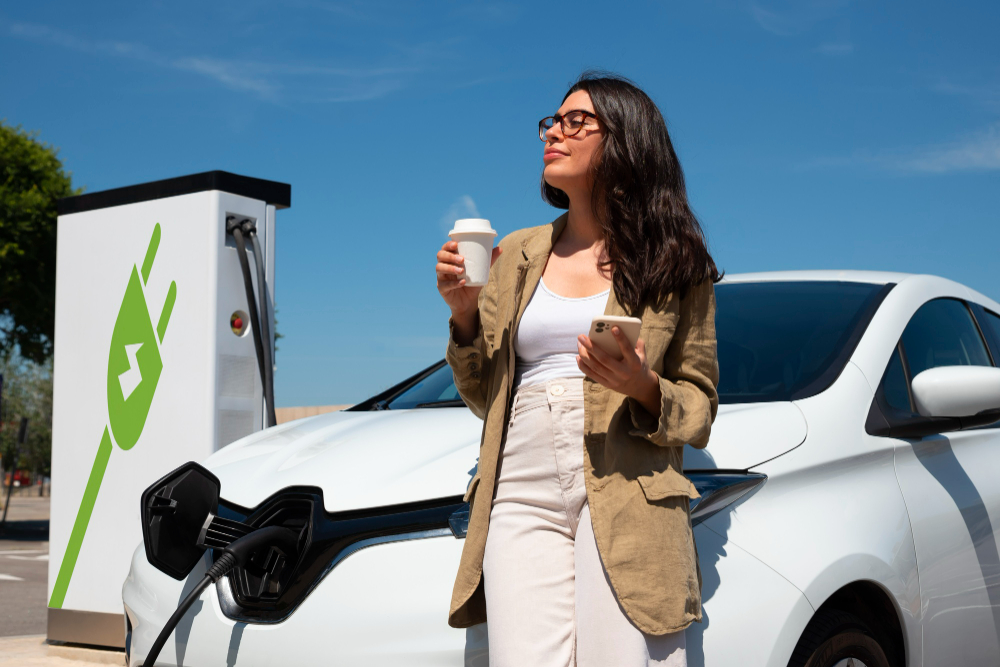- 38% of EV drivers cite tax and NI savings as their main reason for choosing electric
- 28% highlight fuel savings as the biggest motivation for switching
- Dramatic reduction in employee worries – charge point availability, range anxiety, and how long charging takes
- 63% of non-EV drivers still see upfront cost as the biggest barrier, making salary sacrifice crucial to affordability
- Uptake is also fuelled by rapidly dropping concerns around infrastructure, range and charging time
London, UK, 9 September 2025 – Tax and National Insurance (NI) savings are the top reason employees choose an electric vehicle (EV) through a salary sacrifice scheme, according to Tusker’s latest EV Driver Survey Report 2025.
The research1Â of over 6,600 people found that 38% of employees with an EV cited the tax and NI savings as their main motivation for going electric, up from 31% last year. Fuel savings were the next biggest driver at 28%, while just 20% named environmental benefits as their primary reason for switching.
Moreover, price, tax benefits or affordability on a salary sacrifice scheme were the top reason for 69% of non-EV drivers to choose an EV as their next car, followed by 62% citing cheaper running costs. Environmental benefits only concerned 38% of employees – almost half of those wanting it for the savings.
This change highlights how salary sacrifice has evolved from being seen mainly as a “green perk†to becoming a financial wellbeing benefit, offering tangible cost-of-living support. With the high upfront price of EVs still a deterrent for 63% of drivers, salary sacrifice schemes are enabling more people to make the switch without an initial outlay, while cutting their monthly driving costs.
Concerns around charging infrastructure, which has often been seen as a barrier to adoption, are also easing. Worries over charge point availability have dropped sharply from 73% in 2024 to 52% this year. Fewer drivers are concerned about the range of vehicles – down from 70% to 47% – and anxiety about how long EVs take to charge has fallen from 60% to 36%. These findings suggest that while cost remains the central barrier, the practicalities of EV ownership are becoming less daunting to drivers.
Kit Wisdom, Managing Director at Tusker, said: “Much of the EV market’s growth is being driven by salary sacrifice car schemes, where people are making excellent use of the tax and National Insurance (NI) savings available. Research by the British Vehicle Rental & Leasing Association (BVRLA) suggests the use of salary sacrifice grew by 51% in the 12 months to January 2025, partly as a result of smaller and cheaper EVs and new leasing models, including for second-hand EVs.
“Employers also gain from NI savings; plus, as employees are more likely to join an organisation – and stay, employers see improvements in recruitment and retention figures.â€
The survey also shows the wider impact of EV benefits on employee satisfaction. Among Tusker drivers, 96% report they are satisfied or very satisfied with their EV, up from 93% last year, and only 3% plan to go back to drive a petrol or diesel car.
Demand for electric cars through salary sacrifice is expected to grow further. More than seven in ten (71%) non-EV drivers believe they will be driving electric in the next four years, up from 69% in 2024, with over a third (35%) saying they would choose an EV if they were changing their car tomorrow.
“Our survey shows that once drivers make the switch, they don’t look back. The vast majority are satisfied with their EVs, enjoy lower costs and plan to stay electric for the long term. That’s why salary sacrifice is so important: it helps overcome affordability barriers while boosting employee engagement, retention and sustainability commitments,†concluded Wisdom.
Tusker, part of Lloyds Banking Group, has more than 135,000 drivers on the UK’s roads and offers schemes to over 2 million eligible employees.
—
References
1. The annual Tusker EV Driver Survey paints a picture of the current landscape when it comes to the adoption of EVs in the UK, looking at what people like and what concerns they may have around making the transition.
To make the report as insightful as possible, Tusker surveyed 6698 people across three core groups, asking them tailored questions to help gain as much useful information as possible.
These are:
- The general population of drivers who are eligible for, but not currently participating in, a Tusker salary sacrifice car scheme (15% of these already drive an EV) (survey 1)
- Drivers who currently take an EV through the Tusker salary sacrifice car scheme (survey 2)
- Drivers who take a petrol or diesel car through the Tusker salary sacrifice car scheme
(survey 3)
Tusker hopes to provide useful insight, as well as outline how employers can help encourage the move to EVs and, ultimately, net-zero.
Tusker is the UK’s leader in salary sacrifice cars. Part of Lloyds Banking Group, it has more than 15 years’ experience in offering an affordable way for employees to drive a new, fully insured, and maintained car. Its scheme, which is available to over 1.8 million UK employees, offers a range of options, from pure electric cars to hybrids and even traditional petrol and diesel vehicles. It provides a tailored scheme for organisations’ individual needs.




